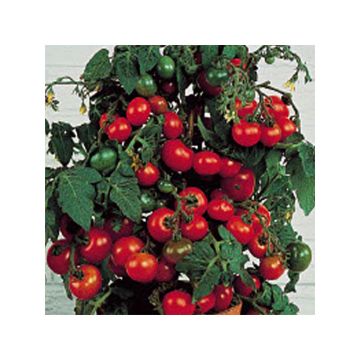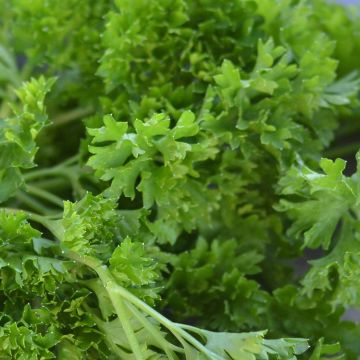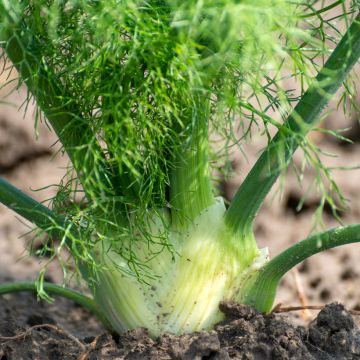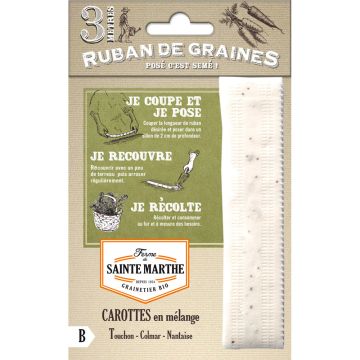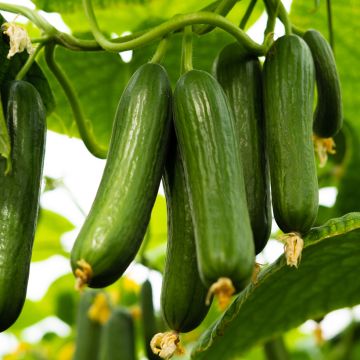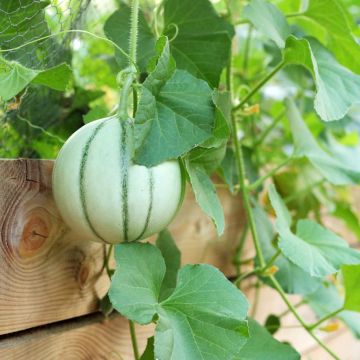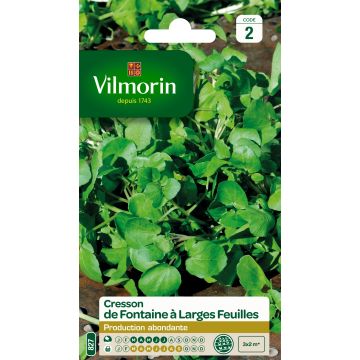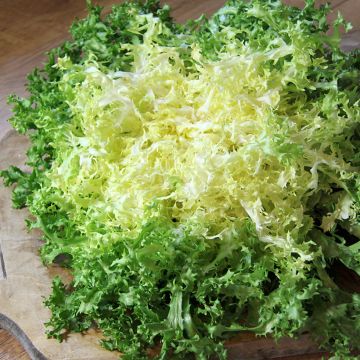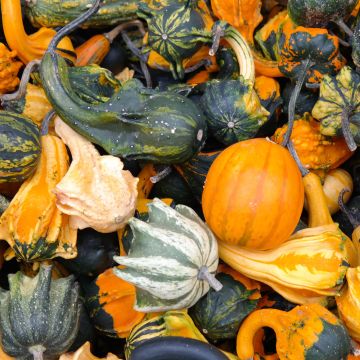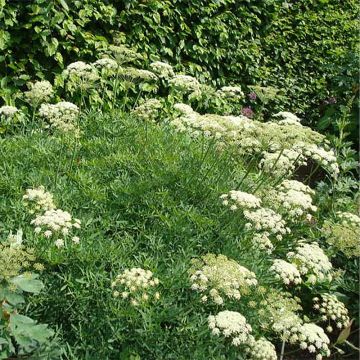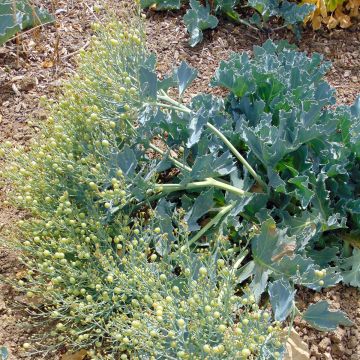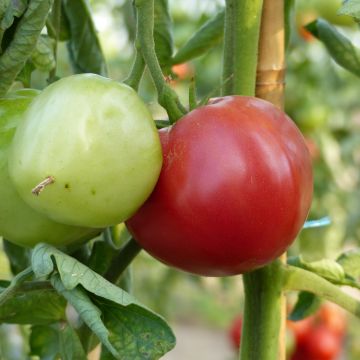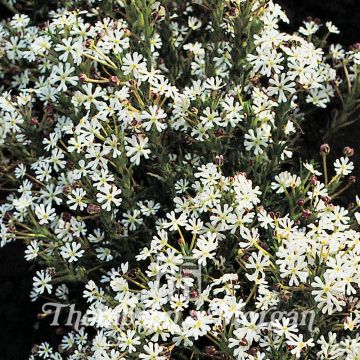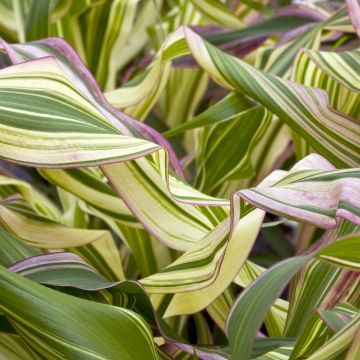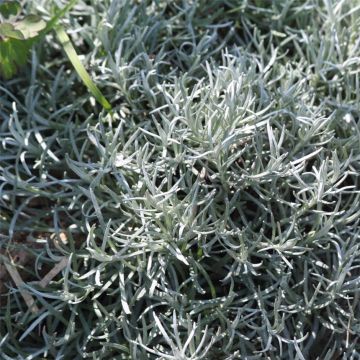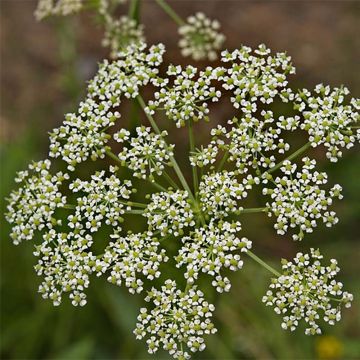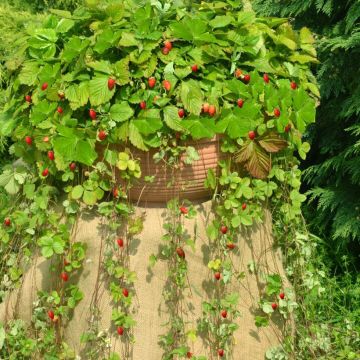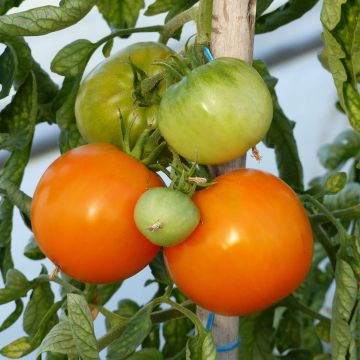

Burdock Takinogawa Long or Gobo - Ferme de Ste Marthe untreated seeds
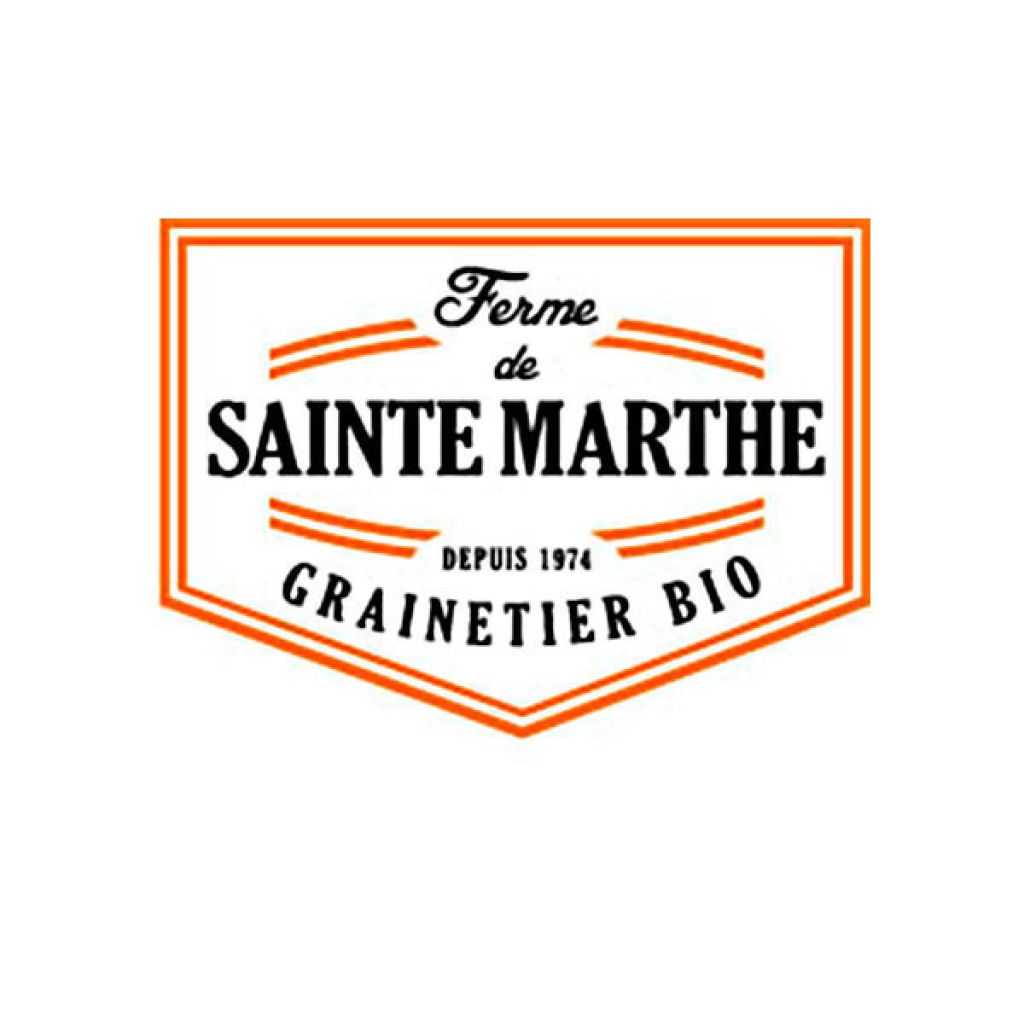

Burdock Takinogawa Long or Gobo - Ferme de Ste Marthe untreated seeds
Burdock Takinogawa Long or Gobo - Ferme de Ste Marthe untreated seeds
Arctium lappa Takinogawa
Greater burdock, Beggar's buttons, Thorny burr, Bardana, Lappa
Partially successful at 85%, under the same conditions as specific research area Bardane NT - Sainte Marthe Farm, closed.
Etienne D., 05/11/2017
This item cannot be shipped to the selected country
Dispatch by letter from €3.90
More information
Schedule delivery date,
and select date in basket
This plant carries a 6 months recovery warranty
More information
We guarantee the quality of our plants for a full growing cycle, and will replace at our expense any plant that fails to recover under normal climatic and planting conditions.
Seed-only orders are dispatched by sealed envelope. The delivery charge for seed-only orders is €3.90.

Description
'Takinogawa Long' is a giant variety of Burdock, native to Siberia and very popular in Japan. It reaches a height of 2.5 meters. This biennial plant is cultivated for its gigantic 40 to 50 cm long roots, which are used like scorzonera or salsify. Sow from February to July and harvest 18 months later.
Burdock has been used medicinally since the Middle Ages and is very popular in Asia. Its root is generally eaten roasted, braised or sautéed. Young shoots can be prepared like asparagus. The young, tender leaves can be finely chopped and added to salads. Burdock leaves can also be cooked and eaten like chard or spinach. Burdock has detoxifying, depurative and diuretic properties and is often used as an essential oil.
Harvesting and storage: for immediate use, harvest the leaves and roots as and when required. Otherwise, wait until the plant starts to flower, then leave to dry in a well-ventilated room.
Good to know: Mulching with crushed burdock is said to be an effective way to fight mildew. Its ability to "concentrate" copper ions makes it a useful natural fungicide. Burdock benefits from a supply of manure or well-rotted compost (3 kg/m²) in late autumn or early spring.
NB. Untreated seeds are produced from conventionally grown plants (that are often treated with phytosanitary products), however they do not undergo any post-harvest treatment. These seeds are approved for organic market gardening when organic seeds are not available.
Report an error about the product description
Harvest
Plant habit
Foliage
Botanical data
Arctium
lappa
Takinogawa
Asteraceae
Greater burdock, Beggar's buttons, Thorny burr, Bardana, Lappa
Russia
Biennial
Other Vegetable seeds from A to Z
Planting and care
Sowing:
For higher germination rates, start in March-April in a cold frame or greenhouse and transplant when the seedlings reach the 3-4 leaves stage.
From May to July, the seeds can be direct sown outdoors. Sow in rows, 40 cm apart. Cover the seeds with half a centimetre of soil or fine compost. Thin out when the young plants reach about 10 cm, keeping only one plant every 25 cm.
Care:
Weed and hoe regularly. Mulching will help keep the soil moist whilst limiting weed growth. Water if necessary.
Seedlings
Care
Intended location
-
, onOrder confirmed
Reply from on Promesse de fleurs
Vegetable seeds
Haven't found what you were looking for?
Hardiness is the lowest winter temperature a plant can endure without suffering serious damage or even dying. However, hardiness is affected by location (a sheltered area, such as a patio), protection (winter cover) and soil type (hardiness is improved by well-drained soil).

Photo Sharing Terms & Conditions
In order to encourage gardeners to interact and share their experiences, Promesse de fleurs offers various media enabling content to be uploaded onto its Site - in particular via the ‘Photo sharing’ module.
The User agrees to refrain from:
- Posting any content that is illegal, prejudicial, insulting, racist, inciteful to hatred, revisionist, contrary to public decency, that infringes on privacy or on the privacy rights of third parties, in particular the publicity rights of persons and goods, intellectual property rights, or the right to privacy.
- Submitting content on behalf of a third party;
- Impersonate the identity of a third party and/or publish any personal information about a third party;
In general, the User undertakes to refrain from any unethical behaviour.
All Content (in particular text, comments, files, images, photos, videos, creative works, etc.), which may be subject to property or intellectual property rights, image or other private rights, shall remain the property of the User, subject to the limited rights granted by the terms of the licence granted by Promesse de fleurs as stated below. Users are at liberty to publish or not to publish such Content on the Site, notably via the ‘Photo Sharing’ facility, and accept that this Content shall be made public and freely accessible, notably on the Internet.
Users further acknowledge, undertake to have ,and guarantee that they hold all necessary rights and permissions to publish such material on the Site, in particular with regard to the legislation in force pertaining to any privacy, property, intellectual property, image, or contractual rights, or rights of any other nature. By publishing such Content on the Site, Users acknowledge accepting full liability as publishers of the Content within the meaning of the law, and grant Promesse de fleurs, free of charge, an inclusive, worldwide licence for the said Content for the entire duration of its publication, including all reproduction, representation, up/downloading, displaying, performing, transmission, and storage rights.
Users also grant permission for their name to be linked to the Content and accept that this link may not always be made available.
By engaging in posting material, Users consent to their Content becoming automatically accessible on the Internet, in particular on other sites and/or blogs and/or web pages of the Promesse de fleurs site, including in particular social pages and the Promesse de fleurs catalogue.
Users may secure the removal of entrusted content free of charge by issuing a simple request via our contact form.
The flowering period indicated on our website applies to countries and regions located in USDA zone 8 (France, the United Kingdom, Ireland, the Netherlands, etc.)
It will vary according to where you live:
- In zones 9 to 10 (Italy, Spain, Greece, etc.), flowering will occur about 2 to 4 weeks earlier.
- In zones 6 to 7 (Germany, Poland, Slovenia, and lower mountainous regions), flowering will be delayed by 2 to 3 weeks.
- In zone 5 (Central Europe, Scandinavia), blooming will be delayed by 3 to 5 weeks.
In temperate climates, pruning of spring-flowering shrubs (forsythia, spireas, etc.) should be done just after flowering.
Pruning of summer-flowering shrubs (Indian Lilac, Perovskia, etc.) can be done in winter or spring.
In cold regions as well as with frost-sensitive plants, avoid pruning too early when severe frosts may still occur.
The planting period indicated on our website applies to countries and regions located in USDA zone 8 (France, United Kingdom, Ireland, Netherlands).
It will vary according to where you live:
- In Mediterranean zones (Marseille, Madrid, Milan, etc.), autumn and winter are the best planting periods.
- In continental zones (Strasbourg, Munich, Vienna, etc.), delay planting by 2 to 3 weeks in spring and bring it forward by 2 to 4 weeks in autumn.
- In mountainous regions (the Alps, Pyrenees, Carpathians, etc.), it is best to plant in late spring (May-June) or late summer (August-September).
The harvesting period indicated on our website applies to countries and regions in USDA zone 8 (France, England, Ireland, the Netherlands).
In colder areas (Scandinavia, Poland, Austria...) fruit and vegetable harvests are likely to be delayed by 3-4 weeks.
In warmer areas (Italy, Spain, Greece, etc.), harvesting will probably take place earlier, depending on weather conditions.
The sowing periods indicated on our website apply to countries and regions within USDA Zone 8 (France, UK, Ireland, Netherlands).
In colder areas (Scandinavia, Poland, Austria...), delay any outdoor sowing by 3-4 weeks, or sow under glass.
In warmer climes (Italy, Spain, Greece, etc.), bring outdoor sowing forward by a few weeks.

































